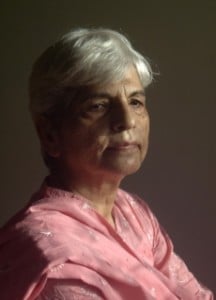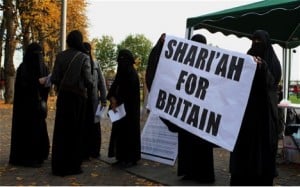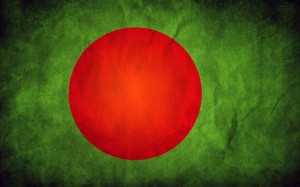“A reporter must ignore critics and write the truth, Mustafa said. ‘Even if it is a tiny little drop in the ocean, you know you have made a contribution,’ she said. ‘So then you can have a clear conscience.’”
– From an article on Zubeida Mustafa by the International Women’s Media Foundation
The past couple of weeks have been difficult for Pakistan’s newsrooms, particularly in terms of the law and order situation in the country. In addition to the monotonous rhetoric leading up to the 2013 Presidential elections, news tickers are rife with stories of target killings in Karachi and the rising sectarian violence that has resulted in the deaths of Shia Hazaras in Quetta. And while Malala Yousufzai slowly regains her strength, another story to emerge, one much sadder, is the death of Anusha – another honor killing this year for what basically amounted to a young girl being unnecessarily punished for “checking a guy out”. Anusha’s plight was in part to become the focus of this post you are reading now. However, two-thirds into the piece, I stopped writing – partially stifled by crippling electricity shortages (they usually taper off during the winter months) and partially because on a personal level, I found the content exceedingly discouraging. Eventually, with a deadline looming, I tried Googling a name that had appeared repeatedly on my “alerts” and voila – let me introduce you to Zubeida Mustafa, a story (and thereby a person) to smile about, for a change.
I don’t believe many of us have heard of Zubeida Mustafa, a writer and journalist who recently retired from her post as Associate Editor at Dawn, Pakistan’s top liberal daily. Mustafa came to my attention because she was recently presented with a Lifetime Achievement Award from the International Women’s Media Foundation (IWMF) at an event held in New York. The award honors women journalists for their courageous reporting and this year’s recipients of the Courage Award include Khadija Ismayilova of Radio Free Europe/Radio Liberty in Azerbaijan, Asmaa al-Ghoul, a freelance journalist in the Gaza Strip, and Reeyot Alemu, who was a columnist for the independent Ethiopian newspaper Feteh until her arrest in June 2011 (who was unable to attend since she is serving a five-year prison term for refusing to self-censor).
While I am unable to secure an interview with Zubeida Mustafa (at least not yet!), there are several profiles of her online that provide a glimpse into the kind person she is, particularly as a writer (available here and here). She speaks of entering journalism somewhat accidentally – looking for employment once her young daughters were school going, Mustafa eventually landed the position of Associate Editor at Dawn (one of the first for a woman) where she remained until her retirement in 2008. As a result, Mustafa was not only able to pioneer the development of the daily, integrating women’s issues across diverse topics instead of relegating them to a separate subject. She is also thereby credited with promoting equal opportunities for women at the newspaper, providing mentorship to burgeoning female journalists. While she faced some level of resistance in terms of content (breast cancer article deemed obscene; backlash for chastising pharmaceutical companies for unethical practices) she also credits her male colleagues at Dawn for recognizing the value of her work.

A reoccurring theme in much of Mustafa’s writing is with respect to inequalities she has witnessed in Pakistani society. Her body of work provides insight on issues close to her heart, of which education tops the list. For instance, Mustafa writes about Malala Yousufzai in conjunction with the launch of the 10th Global Monitoring Report (2012) and questions part of the report’s assessment on Pakistan’s less than stellar educational achievements. The report attributes education failures to the governments’ inability to fund the education sector and recommends the “mobilization of additional funding from diverse sources to meet the training needs of disadvantaged youth”. According to Mustafa, funding is not the problem. “Financial mismanagement, nepotism, poor governance, political meddling, corruption and, above all, lack of motivation at every stage. One wonders if this approach is any less anti-education as the Taliban’s uncouth ways,” she writes, comparing the attack on Malala by the Taliban as equally hindering to education as the governance issues plaguing the State.
The recognition garnered by the awardees with the help of the International Women’s Media Foundation and their Courage in Media Awards is meant to bolster journalistic integrity and is often the result of challenging established rhetoric on a number of key socio-economic development issues in their respective countries. Their stories and struggles are inspirational and open avenues for women to follow in their footsteps as even indicated by Mustafa, “Many years ago in 1994, a very dear friend and colleague of mine, the late Razia Bhatti, also won this honor and that is how the IWMF was introduced to Pakistan. We learnt about the good work the IWMF is doing to encourage female journalists to realize their full potential.”
Putting myself in her place for a moment, acknowledgement even in the form of a two-word feedback can be uplifting and satisfactory. An award (foreign policy connotations aside) can be the icing on the cake. It is more than just vanity. Without sounding too cliched, for many living in an environment of insecurity and distrust, words can provide security, a sense of cathartic relief and be empowering. As I said in the beginning of the article, it has been a difficult few weeks for Pakistan’s newsrooms and unfortunately I expect the years ahead to be even more challenging. Unfortunately, there are bound to more Anushas, many more policy mistakes, and more senseless deaths. But Mustafa gives hope to people like myself, who are looking for a brief respite from the mayhem, for something optimistic within Pakistan’s borders.














